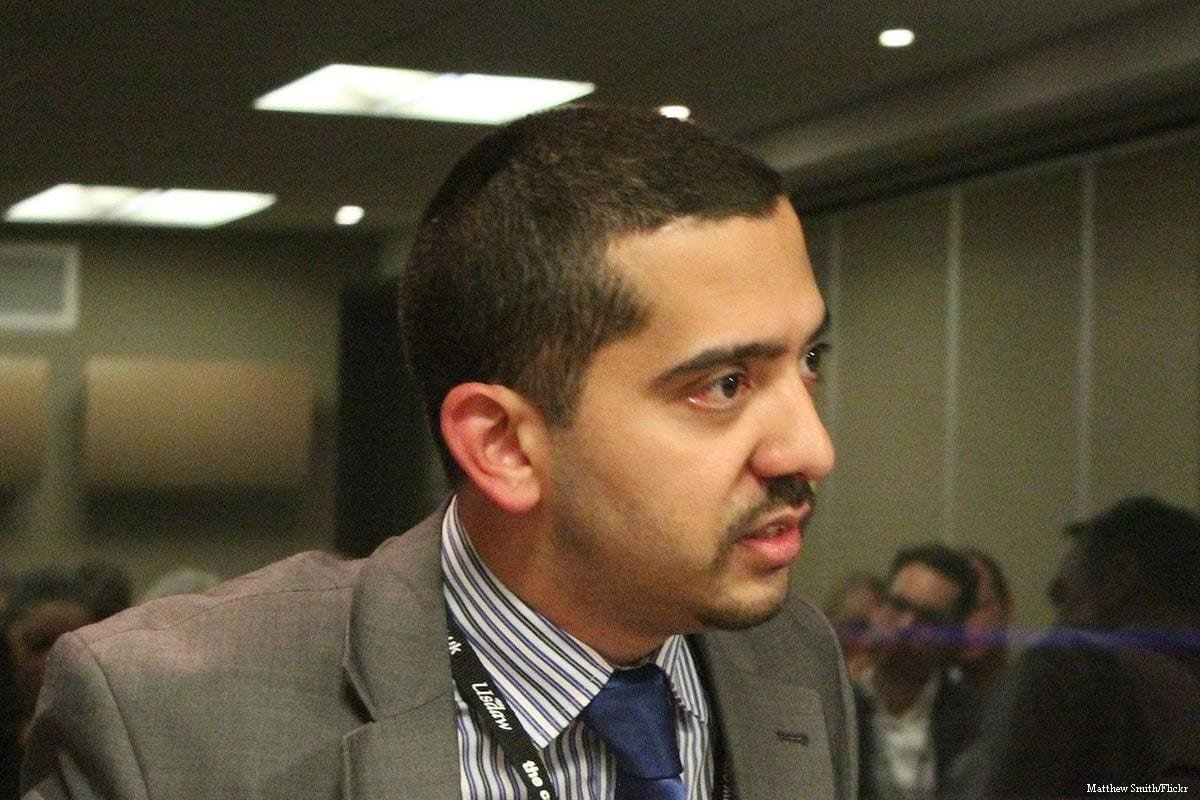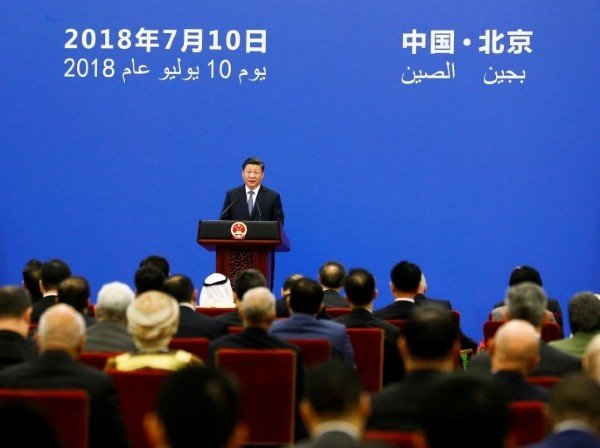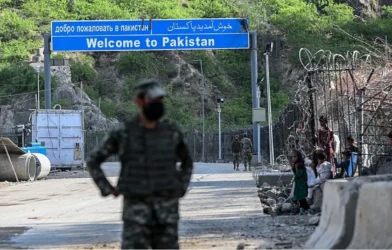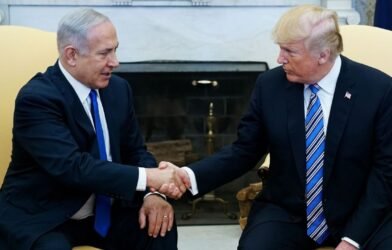Subtotal $0.00
The title sounds shocking, but the premise behind it is what the Chief Minister of West Bengal (West India) Mamata Banerjee, in a verbal spat with ruling party president and architect of its successes, Amit Shah, over the modernization of the civil registration of citizens Assam in the far east of India.
Although it seems normal outside the Indian context and doesn't cause such a fuss, in eastern India, and indeed in all of India, it has become a source of Anxiety Minorities, especially Muslims, who, according to official state statistics, constitute about 17% of the population.
Mamata Banerjee's remarks - which came in response to the removal of nearly four million citizens from official records on the grounds that they were Bengali immigrants - seem shocking, but they should not be taken lightly. The ruling party has formed a committee to investigate the citizenship of the state's citizens and modernize the civil registry, which has not been done since 1952, five years after India's independence, as the majority of India's population lives in villages and mountains and many of them do not have any kind of official papers and are not in touch with modern civilian life.
The issue is even more acute in Assam, one of the poorest and most backward states. Coincidentally, about two-thirds of the four million people dropped from the civil registry are Muslims, who were required to prove their Indianness by producing documents dating back to before Independence in 1947.
| “ It is clear that Muslims are the most affected by the rise of the Hindu movement, as they represent the traditional opponents of the Hindu nationalist movement, which is what many Indian Muslim leaders warn against, as this represents, in their view, further marginalization and exclusion of this "minority" that numbers about two hundred million “ |
What's interesting is that Prime Minister Narendra Modihe announced that he would pass a law in parliament that would make it easier for all minorities with any connection to India to obtain Indian citizenship except Muslims, leading many people to believe that Muslims are the target of these measures, in a country whose constitution states that it is a secular country based on equal citizenship among its people and not on Hinduism, although it is a culture/religion The majority from the people.
On the other hand, Mamata Banerjee, who presents herself as a leader at the national level and not just locally, announced that she would welcome all those who are expelled from Assam to live in the state of West Bengal, which she governs and which is still outside the influence of the ruling BJP, and accused the ruling party of stoking the fire of sectarianism and division, while ruling party leaders, led by Amit Shah, accused her of not caring about the rights of Indian citizens, who have the right not to share their country's wealth with "foreigners" who are more deserving of it.
To further escalate the situation, three ruling party activists in the state of West Bengal filed a case against the chief minister on charges of incitement, the same charge that Amit Shah also made, as the latter visited the state and participated in a huge election rally that paved the way for his party's election campaign and promised to obtain half of the state's seats in the central parliament, which means that these spats and mutual accusations will not stop anytime soon.Declaration
All of this follows opposition attempts to topple the ruling party in parliament through a Withdrawal of confidence It failed to achieve its goal, but it revealed a crack in the ruling coalition and dealt a media and popular blow to it as general elections approach almost a year from now.
The concerns raised by the opposition and minorities about the ruling party's method of governance and its future plans are based on two aspects. The first is related to the hard-right ideology espoused and expressed by the majority of the party's members, leaders and supporters, which is grounded in the writings of the RS leaders, and the other is related to the practical aspect that enables it to change the constitution by achieving a majority in the center and state governments, which means it can transform this ideology and theoretical perceptions into reality on the ground.
The roots of the problem
The roots of the issue go back decades and even centuries. Assam, the easternmost state of India, was a mountainous and sparsely populated region, but with the arrival of British colonization, the British wanted to develop and exploit the region agriculturally, and since the local population was not sufficiently cooperative with the British and lacked agricultural expertise, the authorities then brought in many farmers, administrators and professionals from Bengal, which then included the state of Bengal. Bangladesh and the Indian state of West Bengal to establish tea plantations in the state's mountainous areas and develop the Brahmaputra river basin, which led to the multiplication of the state's production many times over, with the state becoming one of the leading Indian states in terms of production power.
At the beginning of the twentieth century, the British authorities, under pressure from the Indian national movement, established local government councils and a central parliament, and adopted elections to choose their members, which gave "arrivals" to the state from other regions equal political rights with the local population, and then local political and student movements began to form around a practical and political program aimed at removing all non-Assamese from the state, and waves of systematic mass violence began affecting citizens of Bengali origin, including those who had spent more than a century in the state and were credited with helping to transform the state from semi-abandoned lands to a wealthy state.
The bloody events surrounding India's secession were exploited and Pakistan To carry out a campaign Ethnic cleansing The first census of the state's population was conducted and a civil registry was created, and after an agreement between Jawaharlal Nehru The Indian Prime Minister and Liaquat Ali Khan, the Prime Minister of Pakistan at the time, allowed the displaced persons to return to their homes, and this became the subject of a debate about who is an Indian, as the naysayers consider that all those who were not present at the time of the census in the state and did not enter the civil registry are Bengalis unless they can prove otherwise, which is said to be impossible, because many of the displaced persons were driven out of their homes on their faces and had no proof of their existence before that, in addition to the fact that a large group of them were simple farmers who do not care about such procedural matters.
Therefore, after the political pressure exerted by influential people in the state on the Rajiv government Gandhi In 1985, a census was approved, based on the assumption that anyone who was in the state before the war of separation of Bangladesh from Pakistan in 1973 is considered Indian, and anyone who cannot prove this can apply to the Constitutional Court to prove his citizenship, but with the coming to power of the current ruling party, this date was returned to the date of independence, as mentioned above, which added to the complexity and difficulty of the matter.
Effects and reflections
It is understandable that the rise of the right-wing Hindu movement will have profound effects in a country that is very ethnically, religiously, linguistically, culturally and politically diverse and based on consensus among all its components. Forcing this highly complex "diversity" of people into a specific ideological mold is closer to fantasy, and will open doors of conflict with no calculated consequences, as India is a country that cannot be governed like a European nation-state, with the logic of an electoral majority that imposes its will on everyone away from the complexities of reality.Declaration
| “ The Indian political class has the wisdom and experience to find solutions to this issue and turn it into a hiccup if it wants, and it may be that all that is going on is electoral maneuvering paid for by the simple people, which will soon end and will be revisited in the future at every benefit of this kind “ |
There are many separatist movements in India, especially in the east, and if such a thing were to happen, it would be an absolute disaster for the entire region.
It is clear that Muslims are the most affected by the rise of the Hindu movement, as they represent the traditional opponents of the Hindu nationalist movement, which is what many Indian Islamic leaders warn against, as this represents, in their view, further marginalization and exclusion of this "minority" numbering about two hundred million. On the political, social and economic level, this blockade will sooner or later lead to an overwhelming state of anger and rebellion among the youth, and one can imagine if one person out of every thousand Muslims adopts violent protest (terrorism), how many such people will be and what will be their impact on India, its geographical surroundings, and even the world.
There is no doubt that the situation in Assam is an issue whose seeds carry a danger that could go beyond the state's borders, to find ourselves in front of a tragedy similar to that of the Muslims of Burma, but its repercussions, if it occurs, will be much wider, as it could undermine the political situation in Bangladesh and put enormous pressure on the Muslims of India and Pakistan, and thus could be the fuse that ignites a regional war. It could also mean, among other things, the migration of many people to neighboring countries and to the Gulf in particular, knowing that any decline in stability in the South Asian region will definitely affect the security, political and economic situation of Arab countries, especially the Arab Emirates and Oman, due to their proximity to the region and their historical and strategic ties with those countries.
Despite all this, the Indian political class has the wisdom and experience to find solutions to this issue and turn it into a whirlwind if it wants, and all that is going on may be electoral maneuvers paid for by the simple population, which will soon come to an end only to be revisited in the future at every benefit of this kind.











